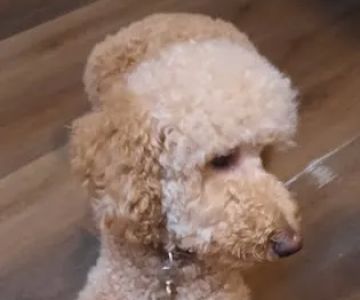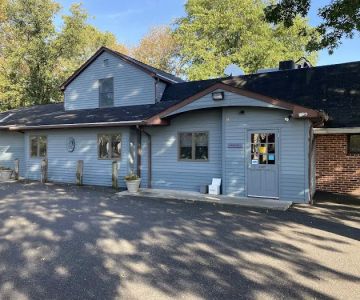Can a Blind Person Attend Veterinary School?
When thinking about attending veterinary school, many prospective students envision a future full of hands-on learning, interacting with animals, and becoming part of the veterinary community. However, for those living with a disability, such as blindness, the path to becoming a veterinarian may seem more complicated. But the good news is, with the right tools and support, a blind person can indeed pursue a career in veterinary medicine. In this article, I’ll explore how blind individuals can attend veterinary school, the challenges they may face, and the various accommodations that can be made to ensure their success.
1. Understanding the Challenges of Being Blind in Veterinary Medicine
Becoming a veterinarian involves a combination of academic studies, practical skills, and hands-on experience with animals. For a blind person, some aspects of veterinary training—such as reading medical records or physically examining animals—might seem daunting. However, with the right adaptive tools and resources, many of these challenges can be overcome. Just as in any other field, people with disabilities are not barred from success, provided they have the necessary accommodations and assistance.
1.1 Practical Skills and Animal Handling
One of the primary concerns for blind veterinary students is learning how to perform physical tasks, such as examining animals or using medical equipment. To address this, many veterinary schools are equipped with specialized technologies and support services that can help blind students succeed. These tools may include tactile diagrams, magnification software, and assistance from trained aides during physical examinations. While there are certainly physical challenges, these can be mitigated with the right support network in place.
1.2 Adaptations in Learning and Education
In veterinary school, students are required to engage with textbooks, research papers, and class lectures. For blind students, this can be made possible through audio formats, braille, and screen-reading software. Many veterinary schools now offer accessible versions of textbooks and lecture materials, ensuring that blind students can fully participate in their education. Additionally, the rise of digital learning platforms has made it easier for students with visual impairments to access lectures, notes, and other essential materials.
2. Veterinary Schools That Provide Support for Disabled Students
Some veterinary schools have become leaders in providing support for students with disabilities. These institutions not only have resources available for blind students but also provide the necessary tools to ensure their academic success. Let’s look at some of the support systems available at top veterinary schools that welcome students with disabilities.
2.1 University of California, Davis – A Leader in Disability Support
The University of California, Davis, is well known for its inclusive environment and commitment to supporting students with disabilities. Their Veterinary Medicine program offers a range of accommodations, from providing tactile models of anatomy to ensuring all lectures and textbooks are available in audio and braille formats. UC Davis also has a dedicated Disability Support Services office that works closely with students to ensure they receive the necessary resources to succeed.
2.2 Cornell University – Emphasizing Accessibility
Cornell University’s College of Veterinary Medicine is another institution that is committed to providing equal opportunities for students with disabilities. The school offers specialized support services and accessibility tools for students with visual impairments, including assistance with animal handling and surgery practice. Their inclusive approach ensures that students have the same opportunities to engage with their education as their sighted peers.
3. Success Stories: Blind Students Who Have Succeeded in Veterinary School
Overcoming the challenges of blindness in veterinary medicine is no easy task, but there have been numerous success stories of blind individuals who have gone on to excel in the field. Their stories serve as an inspiration for others who may think their disability is a barrier to becoming a veterinarian.
3.1 Dr. William “Bill” Green – A Groundbreaking Success
One of the most inspiring stories comes from Dr. William “Bill” Green, a veterinarian who was born blind. Bill attended the University of California, Davis, and overcame significant challenges to earn his degree in veterinary medicine. Throughout his education, he utilized specialized tools such as tactile models, assistance from peers, and adaptive learning techniques. Today, Dr. Green runs a successful veterinary practice, proving that determination and the right accommodations can allow anyone to pursue their dreams in veterinary medicine.
3.2 Dr. Jacqueline McCullough – Breaking Barriers in Veterinary Care
Dr. Jacqueline McCullough, another trailblazer in the field, is a blind veterinarian who has made a significant impact in veterinary care. She attended veterinary school at North Carolina State University, where she utilized accessible learning tools and received hands-on support to navigate her clinical training. Today, Dr. McCullough works with a wide variety of animals, demonstrating that blindness is not a barrier to providing excellent care to animals.
4. How Veterinary Schools Are Becoming More Inclusive
Many veterinary schools are increasingly aware of the importance of inclusivity and are taking steps to ensure that students with disabilities, including those who are blind, are provided with the tools they need to succeed. These schools are not only offering the necessary academic accommodations but are also working to provide an inclusive environment that encourages students with disabilities to pursue their passion for veterinary medicine.
4.1 Collaboration with Disability Organizations
Veterinary schools are partnering with disability advocacy organizations to improve the quality of education for students with visual impairments. These collaborations have led to better access to learning materials, enhanced clinical training programs, and the development of new assistive technologies that can aid blind students in veterinary school. As awareness of these needs continues to grow, more schools are embracing disability-inclusive practices.
5. Moving Forward: The Future of Veterinary Education for Blind Students
The future of veterinary education for blind students looks promising. With advancements in technology, more schools are able to provide accessible learning environments, and the veterinary profession as a whole is becoming more inclusive. As more blind students successfully complete veterinary programs and become practicing veterinarians, it paves the way for future generations of students with disabilities who dream of working in animal care.
5.1 Continued Advocacy and Awareness
Continued advocacy for blind individuals in veterinary medicine will help push the profession toward even greater inclusivity. Awareness campaigns, legal protections, and the sharing of success stories will inspire others to pursue veterinary education, regardless of disability. The more support and resources available to blind students, the more likely it is that they will have the opportunity to excel in this fulfilling career.
6. Conclusion
Being blind should never prevent someone from pursuing their passion, and veterinary school is no exception. With the right accommodations, support systems, and adaptive technologies, blind individuals can not only attend veterinary school but thrive in the profession. Through the inspiring stories of blind veterinarians and the growing inclusivity of veterinary programs, we are seeing a future where anyone, regardless of their disability, can fulfill their dream of becoming a veterinarian.











